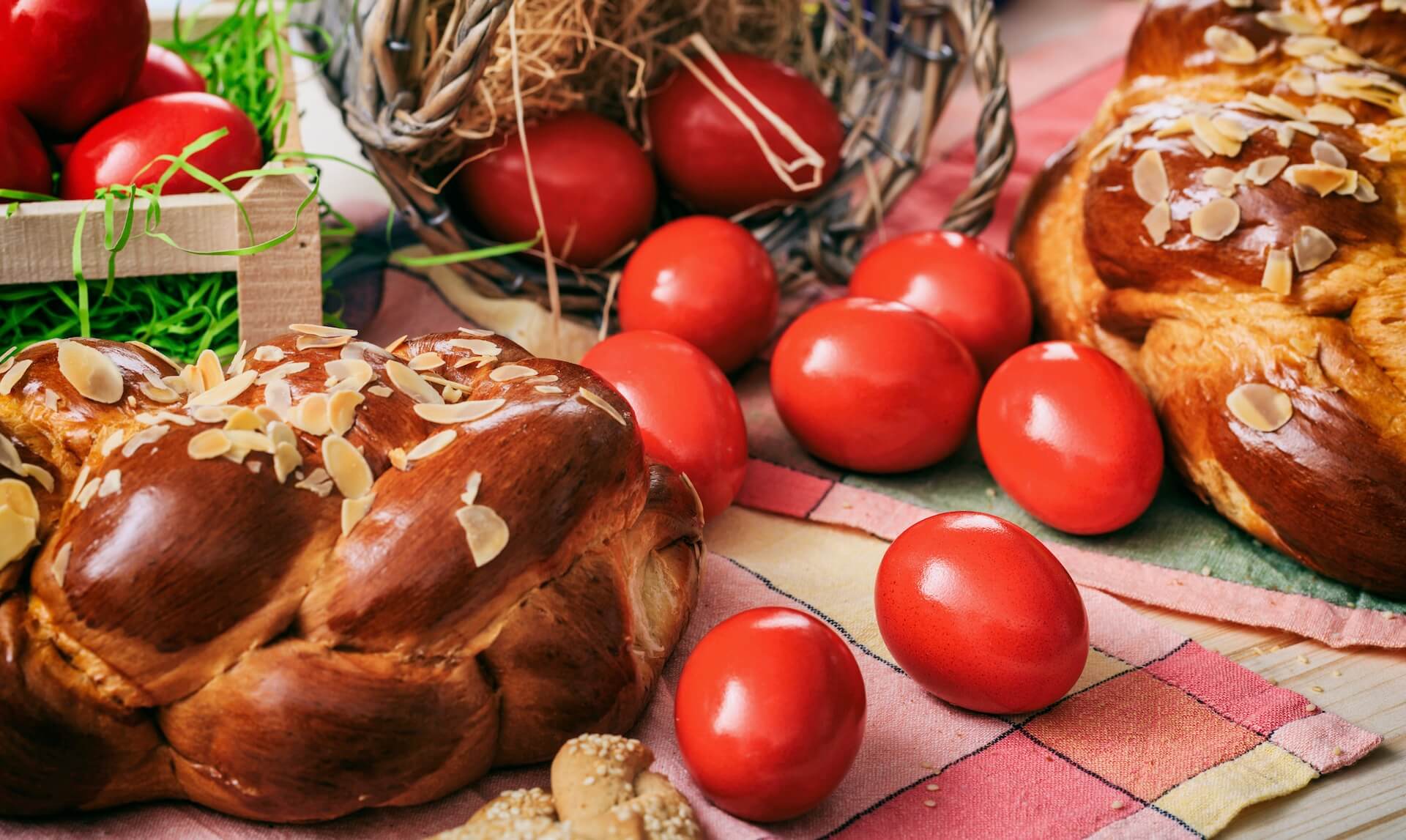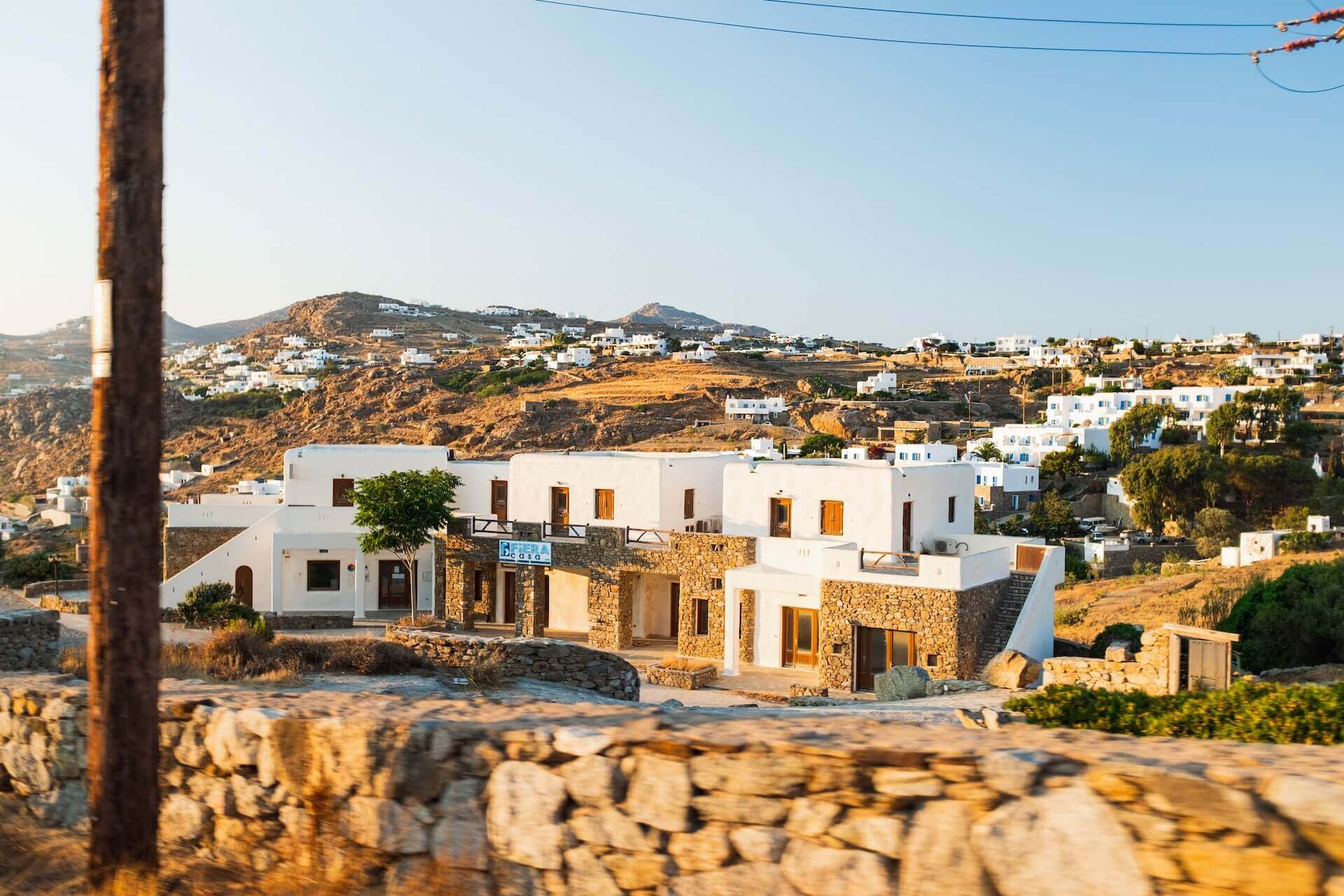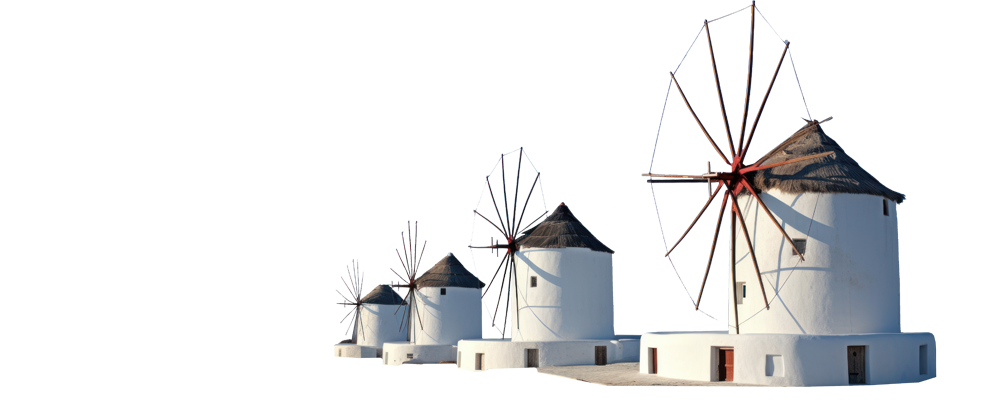Greek people have many religion-related traditions, and some of the most important ones are undoubtedly those related to the beautiful holiday, Greek Easter. If you’re planning a trip to Greece that coincides with these festivities, we suggest taking a look at what are the most known traditional events you can expect to see in this country. Our text can help with that.
Traditions are an important part of Greek culture. Of course, visiting Greece at any time of the year will be a wonderful experience, but if you come to Greece around Easter – or as Greeks call it, Pascha, you will get to experience the full authenticity of this country. Out of respect to the local people, it would be nice if you knew the basics of the traditional happenings you will witness. We will break everything down in the text below, so keep reading.
Orthodox Traditions Related to Greek Easter Begin With Apokries
Orthodox faith is full of lovely customs, and some of the most interesting ones are related to Easter. The celebration starts way before the actual day we celebrate the resurrection of Jesus Christ, with Apokries.
Apokries are essentially carnival celebrations that last for three weeks and precede the Great Lent. They have roots in Pagan tradition but are now mostly associated with Orthodox Church. You can see parties, parades, confetti, and fancy costumes all over Greece, but the biggest carnival takes place in the Peloponnese port city, Patras.
Great Lent Starts on Clean Monday After the Apokries and Ends on Greek Easter
After weeks of Apokries, the next holiday in the row is Clean Monday or Ash Monday. This is one of the most festive days of the year when people fly kites and enjoy the beautiful Greek nature or feast in local tavernas. Still, it’s important to note that the food they eat on this day is never animal-based because this is when fasting starts. The fast is known as Great Lent, and it will proceed until Easter. Not everybody fasts the entire 40 days, but most people obey the traditions during Holy Week.
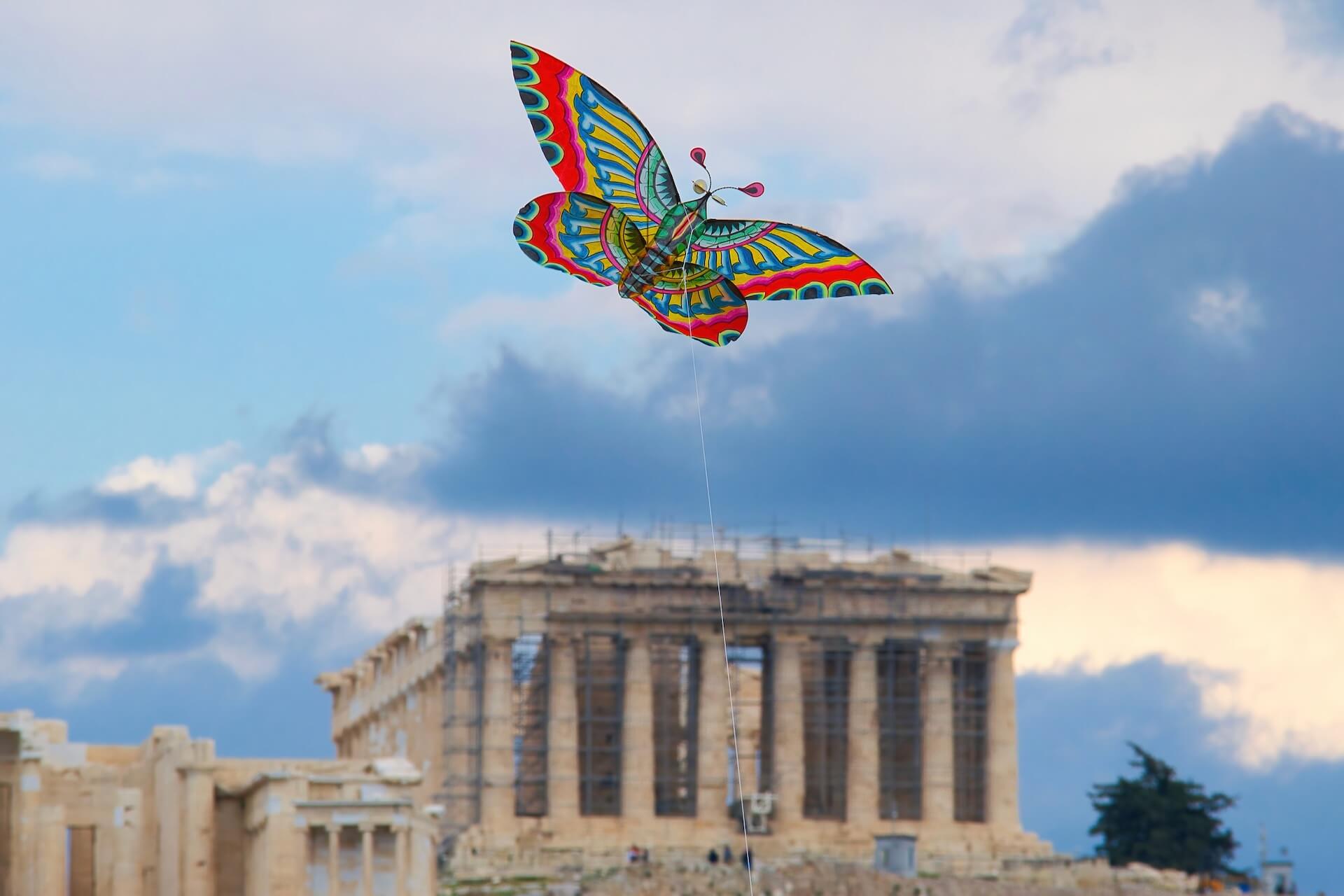
After the Apokries comes Clear Monday when people fly kites and start fasting
The Holy Week Is the Last Week of Lent and Ends With Easter
The Holy Week starts after Palm Sunday and lasts until Pascha. It is a truly important time for Orthodox believers, and it marks the time of Christ’s suffering and redemption of the human race. From Holy Monday to Holy Wednesday, there are no specific customs that take place outside the church, even though they have specific meaning in religion. The actual events regarding Pascha start on Thursday.
Holy Thursday – Time to Dye the Eggs
This day marks the Last Supper that Jesus Christ had with his twelve Apostles. Greeks commemorate the occasion by preparing red hard-boiled eggs that will be eaten on Pascha as well as Easter cookies, also known as koulourakia in Greek. Eggs bear huge significance, and they represent eternal life and fertility.
The egg itself symbolizes Christ’s tomb, and the red is supposed to represent the blood of Christ. Nowadays, however, the eggs are painted in various colors, and you can even find prepared egg packages in supermarkets to buy.
Holy Friday – The Day of Mourning in Greece and Other Orthodox Countries
Good Friday, or Holy Friday, is one of the saddest holidays in Christianity – this was the day when Jesus died. There are morning and evening masses, and you can hear chanting from all the churches. In the evening, there is a custom of covering the Epitaphios, a wooden structure, with flowers. After the church service ends, priests will lead the believers through the streets, carrying the Epitaphios.
Holy Saturday – The Evening Visit to Church and the End of 40-Day Lent at Midnight
The lent is still going on on Saturday, and you can break the fast only after midnight. Before that, get ready for an evening visit to church for the service. Just before midnight, the lights go off, and right at midnight, there is light again – from countless candles that believers light.
Everybody starts chanting “Christos Anesti”, which means “Christ is risen.” After a church visit, a lot of people are eager to break the fast, so it’s common to have a meal after midnight. The traditional dish that’s eaten on this occasion is magiritsa, a soup prepared from the lamb’s organs.
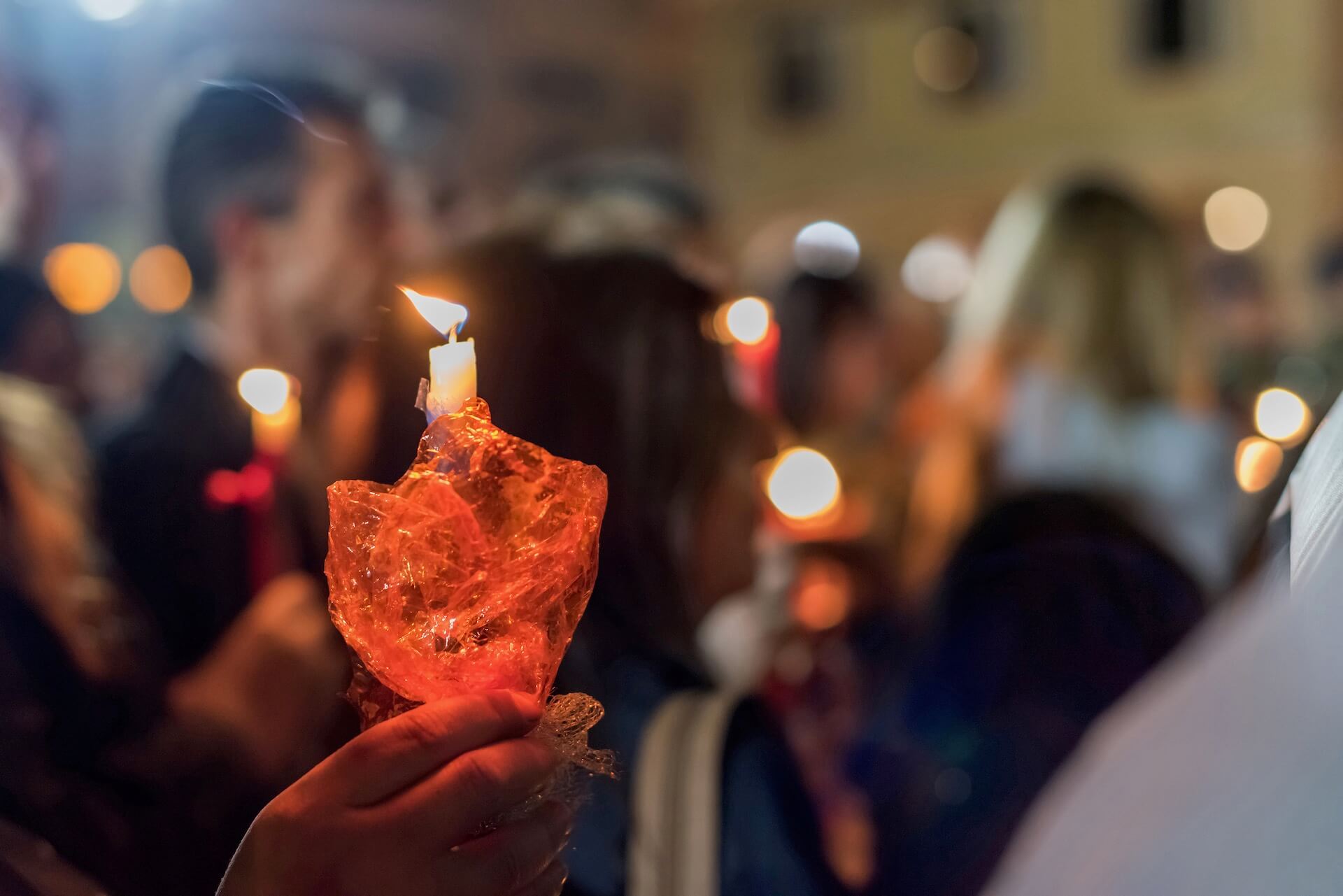
After traditional church service in the evening on Saturday, Greeks go home for a meal
Celebrating the Resurrection of Christ – Easter Sunday
Pascha is one of the happiest moments for Christians, and it marks the time for family. Greeks enjoy food, drinks, and folk music in the family atmosphere and greet each other by saying Christos Anesti. If you want to impress the locals, respond to this greeting by saying Allithos Anesti. This translates to “truly, he has risen.” Another version of the Easter greeting is Kali Anastasi, which simply means happy resurrection.
The traditional food that’s eaten on this day is roasted lamb, and there is also tsoureki, sweet Easter bread. Greeks also play the traditional red egg game on Pascha. The family gathers around the table, and two players choose their eggs – one holds the egg, and the other taps it with its own. The winner is the person who manages to crack the opponent’s egg first.

Pascha means being with family, eating delicious food, and cracking eggs
If You Plan on Spending the Holy Week in Mykonos, Contact Us for the Perfect Accommodation
Wherever you go in Greece during Pascha festivities, you will have a lovely vacation. Greek islands are especially beautiful, and Mykonos is certainly among the most popular tourist destinations. If you decide to visit this lovely place, be sure to contact The Ace Vip for excellent villas in Mykonos. We have the best luxury villas in Mykonos, and one of them will make for a magical holiday spot for you and your family. You can also reach out to us for car rentals, and we offer yacht rentals as well.

